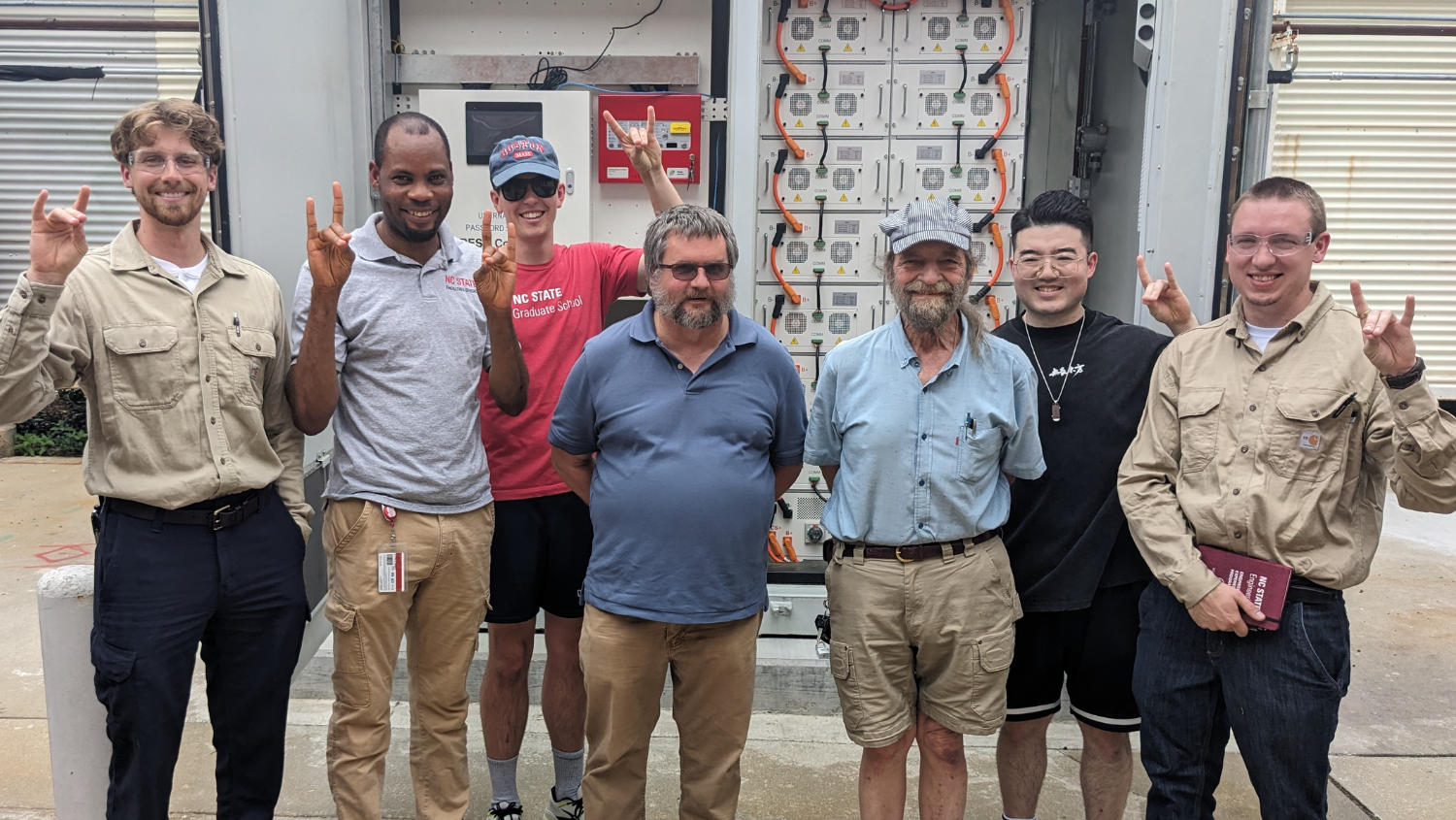Battery-Powered Savings on Centennial Campus

NC State’s Centennial Campus now benefits from an energy boost with the introduction of a Battery Energy Storage System (BESS) located near Partners I Building. Since January, the university has been supplying 430kWh energy to the Centennial Campus power grid. As utility rates climb, this type of energy storage is a critical component of NC State’s utility infrastructure, providing cost savings, bolstering reliability and enhancing grid resiliency.
BESS works by charging its batteries during discount, or off-peak, periods during the day. Then, it discharges that energy to campus buildings during peak demand periods when electricity rates are more expensive. The goal is to shave NC State’s campus peak demand by approximately 250kW.

Beyond cost savings, BESS can also lighten the load of NC State’s cogeneration technologies during regional curtailments when electricity is reduced to avoid blackouts. BESS can also provide supplemental backup power to the campus grid during inclement weather conditions.
BESS is an integral component to campus efforts that advance collaborative research. Currently, NC State Energy Management and the University Sustainability Office are mentoring three graduate students as part of a Masters of Electric Power Systems Engineering course project through the Campus As A Classroom program. This collaboration fuels advanced research on battery energy storage applications, including electric service reliability and resilience, energy arbitrage, fast response frequency regulation, renewables firming, demand side management and transmission and distribution system deferral.
As part of Energy Management’s commitment to sustainability, efforts are being made to reduce campus energy use intensity by 40% from the 2003 baseline and water consumption by 65% from the 2002 baseline. Given that approximately 75% of the university’s Raleigh campus carbon footprint stems from campus energy consumption, the adoption of efficient and reliable battery energy storage like BESS is crucial for transitioning to low-carbon electricity.
There are numerous opportunities for faculty, staff and students to collaborate with Energy Management. Learn more at energymanagement.ncsu.edu and contact save-energy@ncsu.edu for details.